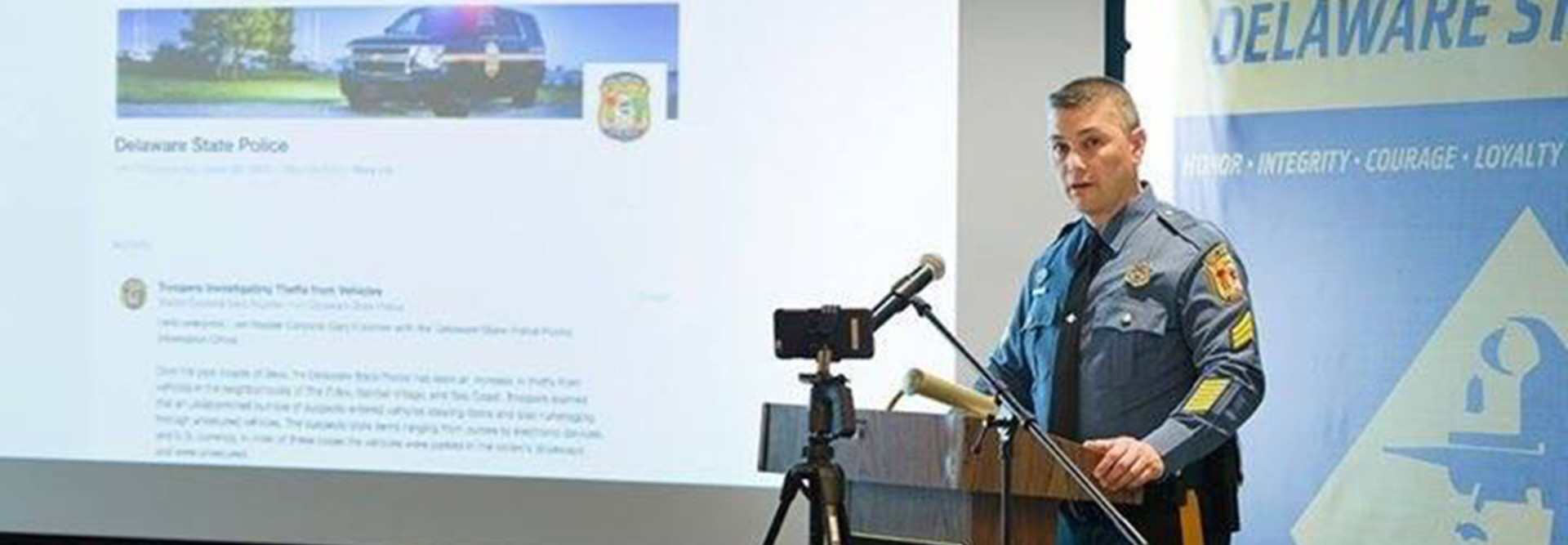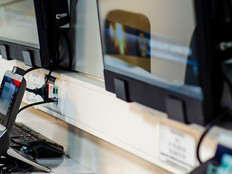Delaware State Police Explore Neighborhood-Driven Social Media with Nextdoor Partnership
For public safety organizations like law enforcement, interacting and engaging with the community has increasingly shifted to social media platforms such as Twitter and Facebook. For example, the City of Miami Police Department found success with its recent “Running Man” challenge video, which amassed over 9 million views on Facebook.
But the promise and scope of platforms like Facebook and Twitter is largely dependent on its broad, global reach. For local law enforcement, like state, county and city police, operating on a targeted, smaller scale is key. That’s the gap that Nextdoor, a neighborhood-focused social media site, hopes to fill.
“Social networks have become mainstream and ubiquitous. There are a variety of social networks to connect us with friends, family, and professional contacts, but nothing existed to connect us with one of the most important communities in all of our lives: where we live. Nextdoor was created to change that,” said Anne Dreshfield, a Nextdoor spokesperson.
In an attempt to get closer to the communities and constituents it serves, the Delaware State Police Department (DSP) announced a groundbreaking partnership with Nextdoor in May.
“The Delaware State Police is the first state police agency in the country to utilize Nextdoor.com,” said Colonel Nathaniel McQueen Jr., superintendent of the Delaware State Police. “Selected Troops throughout the state are piloting the social media platform. Neighbors across the state will be able to work together to increase safety and strengthen virtual neighborhood watch programs with the support of the Delaware State Police and Nextdoor.”
A Unique Partnership for Community Policing
As the first state police agency to tap Nextdoor as a platform for engagement, tips and information, Delaware State Police had to lean heavily on Nextdoor for best practices and guidance on how to best leverage the social network.
“There are more than 400 Nextdoor neighborhoods using Nextdoor across the Delaware State Police Department's jurisdiction,” said Dreshfield. “The Delaware State Police Department is an innovative agency that was looking for more ways to connect with the residents they serve. They reached out to us and we trained them on how to best use Nextdoor to communicate with residents across their troop locations before officially partnering with Nextdoor in May.”
Nextdoor is especially valued as a platform by DSP is because it’s secure and offers a level of transparency that is lacking on other platforms.
“We like it because you have to use your real name and people want to make their communities safer and stronger,” said Sgt. Richard D. Bratz, Delaware State Police public information director. “The Nextdoor.com platform has increased our ability to reach specific neighborhoods, regional areas like specific Troop areas, as well as the whole state.”
For other local law enforcement agencies seeking to better understand the unique, local benefits of Nextdoor as a social media platform, Dreshfield points out:
- Each Nextdoor neighborhood is private, secure and can only be accessed by members who have verified their residence, which ensures the information that agencies are sharing reaches the right audience.
- Nextdoor gives agencies the ability to send targeted, hyper-local messages to residents in specific neighborhoods, zones, or districts — or, if the need arises, send messages to a group of neighborhoods, or across their jurisdiction, such as during a natural disaster.
- Nextdoor allows agencies and neighbors to have a two-way dialogue.
DSP has thus far used Nextdoor to message residents for various reasons, including invitations to see K-9 demos, announcements of free car seat installations and details of criminal investigation outcomes/arrests that affect specific neighborhoods, said Bratz.
Although Nextdoor offers new and exciting opportunities for neighbors to interact, Bratz notes that it’s important to remember that Nextdoor doesn’t replace the traditional methods of communication in emergency situations.
“This is an excellent social media platform but it’s not to be used for an emergency or in-progress complaints, or where emergency services are needed. Please call 911 for anything suspicious or in progress,” said Bratz.









